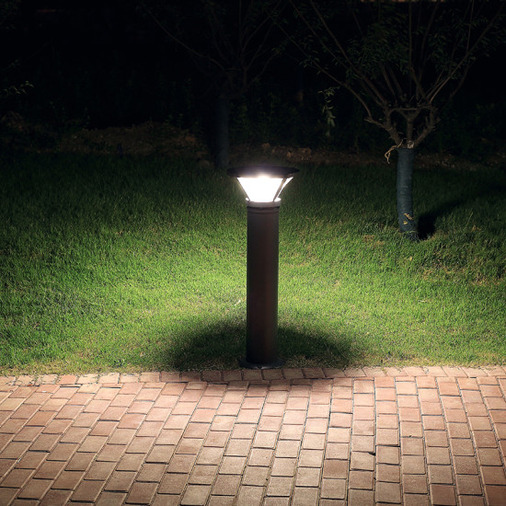Cost Analysis: The Long-Term Savings of Solar Bollards Over Traditional Lighting Solutions
The Significance of Outdoor Lighting
Have you ever found yourself stumbling in the dark trying to navigate a poorly lit pathway? Outdoor lighting is more than just a functional necessity; it’s about safety, aesthetics, and accessibility in public spaces. Whether it’s lighting up a parking lot or illuminating a quaint garden path, the right lighting can transform an area dramatically.
Introduction to Solar Bollards as a Sustainable Lighting Solution

Enter solar bollards: a beacon of innovation in the realm of outdoor lighting. These self-contained, solar-powered lights offer a greener alternative to traditional lighting, harnessing the sun’s energy to provide illumination.
Why should we care about solar bollards?
This article dives deep into the economics of solar bollards compared to conventional lighting options. We’ll explore whether solar bollards truly save money in the long run and what other benefits they bring to the table.
Traditional Lighting Solutions
Overview of Traditional Outdoor Lighting Options
Traditional outdoor lighting typically involves incandescent, fluorescent, and LED lights. Each has its own set of pros and cons regarding energy consumption, lifespan, and luminance.
Initial Installation Costs
Installation costs for traditional lighting can vary widely. Factors such as the complexity of electrical wiring and the physical infrastructure needed can drive up initial expenses.
Maintenance Expenses
Ever thought about how much it costs to replace a burnt-out street lamp? Traditional lighting systems require regular maintenance which includes bulb replacements, electrical testing, and repairs.
Energy Consumption and Associated Costs
Traditional lights consume a significant amount of electricity. The operational costs can accumulate over time, particularly in areas where electricity rates are high.
Introduction to Solar Bollards
Explanation of Solar Bollards and How They Work
Solar bollards consist of a solar panel, a battery, LED lights, and a controller. They collect solar energy by day and light up automatically after dusk, all without the need for external power sources.
Advantages of Solar Bollards Over Traditional Lighting Solutions
Solar bollards offer distinct advantages:
- Reduced energy costs: They use free solar energy.
- Minimal maintenance: No bulbs to change or wires to repair.
- Ease of installation: No need for trenching or cabling.
Environmental Benefits of Solar-Powered Lighting
Switching to solar reduces reliance on fossil fuels, decreasing carbon emissions and helping combat climate change.
Cost Analysis
Initial Investment
While the upfront cost of solar bollards might be higher than traditional lights, there are government subsidies and tax incentives that can help mitigate these costs.
Operating Costs
Solar bollards essentially eliminate energy costs and significantly reduce maintenance expenses. We’ll break down these savings with some surprising numbers.
Long-term Savings Potential of Solar Bollards
How much can you really save by switching to solar bollards? The numbers are compelling, especially when you consider the lifespan of solar bollards compared to traditional lights.
Factors Influencing Cost Savings
Location and local energy prices play crucial roles. In sunnier climates, for instance, solar bollards perform more efficiently, leading to greater savings.
Case Studies and Examples
Real-world Examples
Many cities and organizations worldwide have already adopted solar bollards. We’ll look at specific examples, including how much they’ve saved.
Quantifying Cost Savings
These examples will provide clear insights into the actual savings achieved over years of use.
Challenges and Unexpected Benefits
What issues might arise with solar bollards, and what unforeseen advantages could they offer? We’ll explore these aspects through firsthand accounts.
Environmental Impact
Reduced Carbon Emissions
By cutting down on electricity derived from fossil fuels, solar bollards significantly reduce carbon footprints.
Ecological Footprint Comparison
How does the production, operation, and disposal of solar bollards compare to traditional lighting in environmental terms?
Sustainability and Corporate Social Responsibility
Adopting solar bollards reflects a commitment to sustainability, enhancing a company or municipality’s green credentials.
Summary of Findings
Our analysis confirms that solar bollards offer substantial long-term cost savings and environmental benefits.
The Economic and Environmental Advantages
The case for solar bollards is strong both economically and environmentally. They are not just a cost-effective solution but also a step towards a more sustainable future.
Encouraging Further Adoption
Given their benefits, it’s clear that increasing the adoption of solar bollards can help make our urban spaces safer, prettier, and environmentally friendlier.
FAQs
- How long do solar bollards last? Solar bollards typically have a lifespan of about 10-15 years, depending on the quality of components and environmental factors.
- Are solar bollards effective in cloudy or low-light conditions? Yes, modern solar bollards are designed to accumulate and store enough energy during the day to operate effectively, even on cloudy days.
- What maintenance do solar bollards require? Maintenance generally involves keeping the solar panels clean and occasionally replacing the batteries.
- Can solar bollards replace all types of traditional lighting? While solar bollards are ideal for pathways, gardens, and small streets, larger areas may require additional or different types of lighting solutions.
By embracing solar bollards, we not only light our pathways but also pave the way toward a sustainable and cost-effective lighting future. Join the movement towards greener lighting solutions and witness the transformation in your community and budget!
Reference:
https://orcasolarlighting.com.au/solar-bollard-lighting
Read more about commercial solar street lights
Illuminating the Path: The Rise of Commercial Solar Bollards in Australian Landscapes
Eco-Friendly and Efficient: How Solar Bollards Are Shaping Australia’s Green Cities
Innovation in Illumination: The Latest Technologies in Solar Bollard Design
The Role of Solar Bollards in Australia’s Varied Climates
Regulatory Insights: Compliance and Standards for Installing Solar Bollards in Australia
Public Perception and Acceptance: Community Responses to Solar Bollards in Urban Areas
The Future of Outdoor Lighting: Predictions for Solar Bollards in the Next Decade








